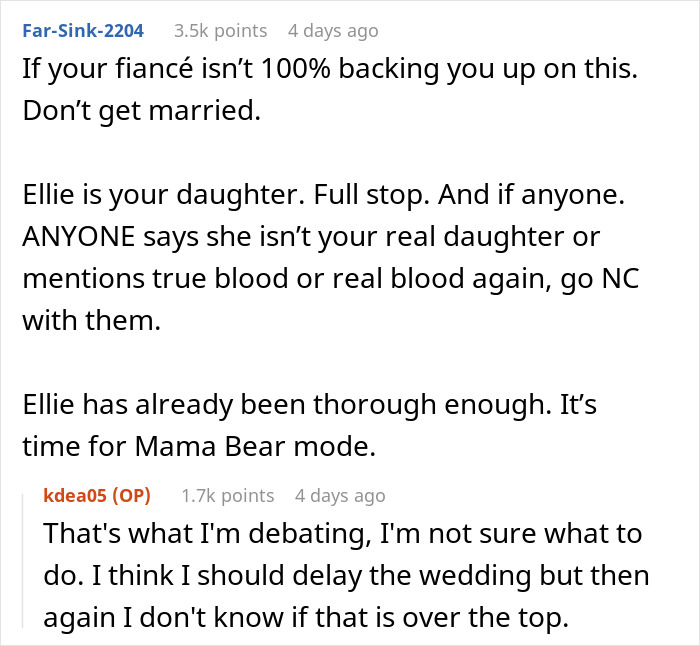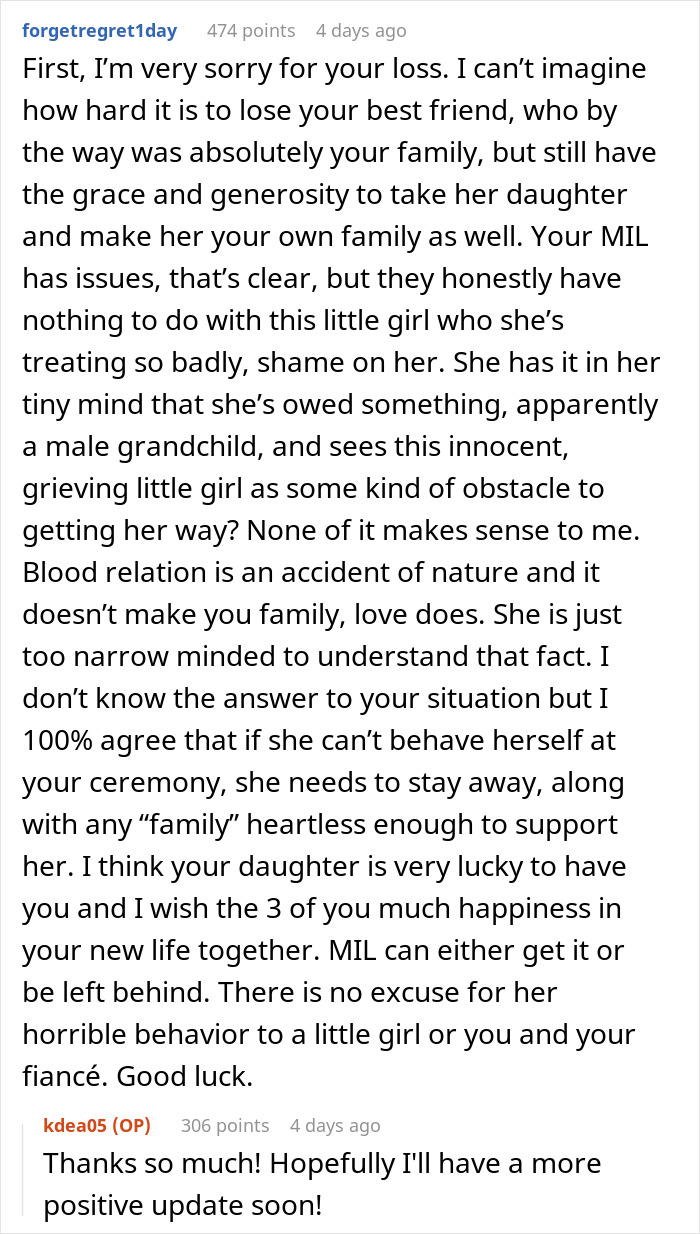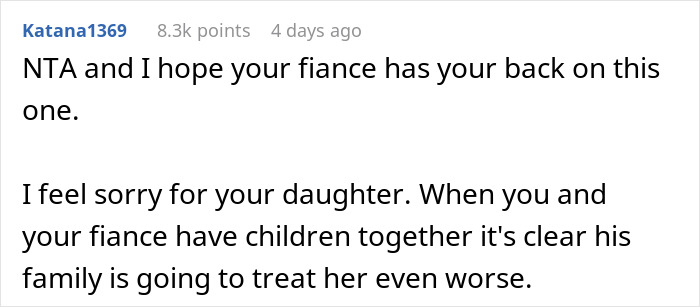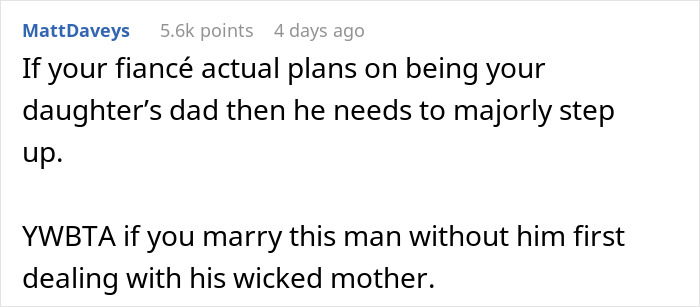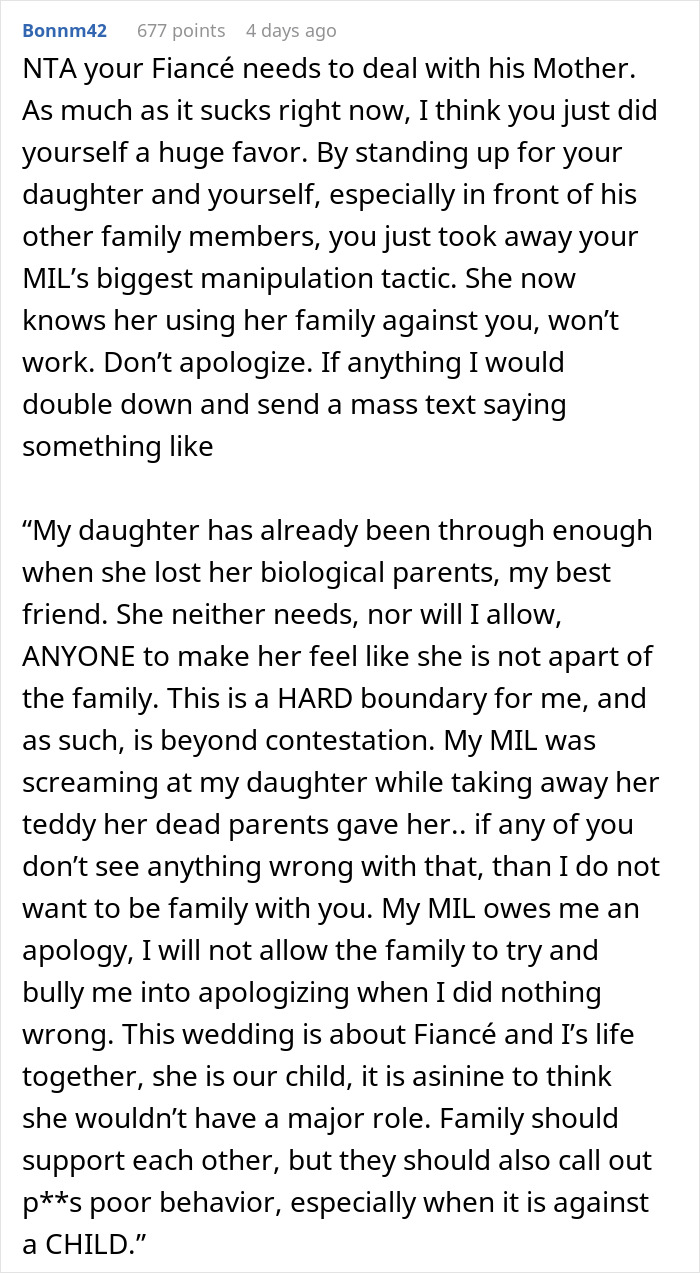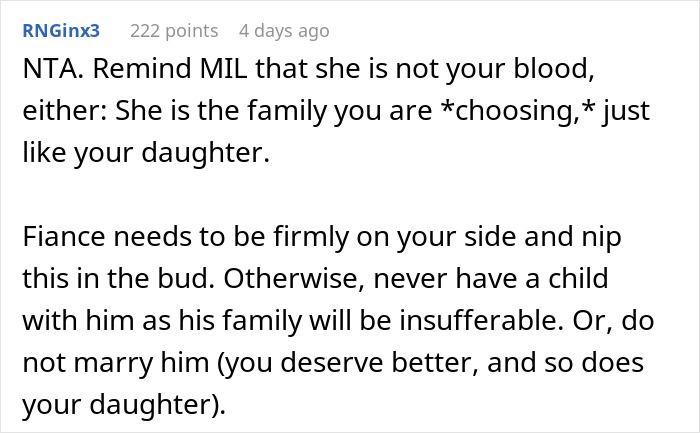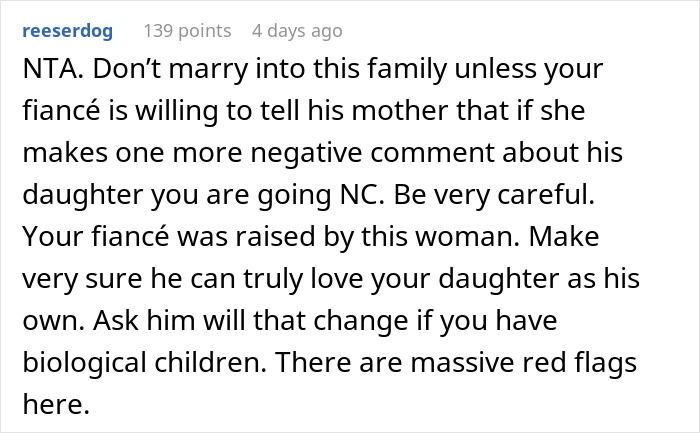People say that blood is thicker than water, which suggests that biological family ties are stronger than any other kind of relationship. They also say that the blood of the covenant is thicker than the water of the womb, which means family isn’t just defined by biology. However, not many people share this sentiment. This was the case of a Reddit user who had to deal with her overbearing mother-in-law’s disdain for her adopted daughter. As if her behavior wasn’t enough, her in-laws expect her to apologize for setting healthy boundaries.
More info: Reddit
The author of the post and her fiancé chose to adopt their friend’s five-year-old daughter after the demise of the girl’s mother

Image credits: mododeolhar (not the actual photo)
Due to their upcoming nuptials, she chose to make the little girl her flower girl, but this did not go well with her mother-in-law, who claimed she chose “fake blood over real blood”
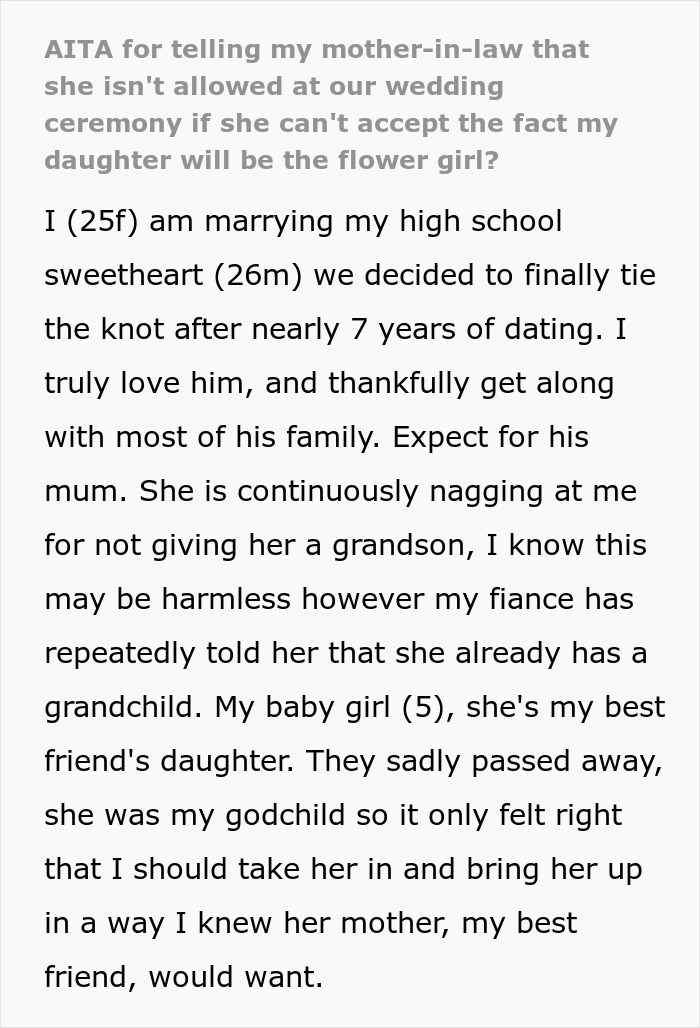
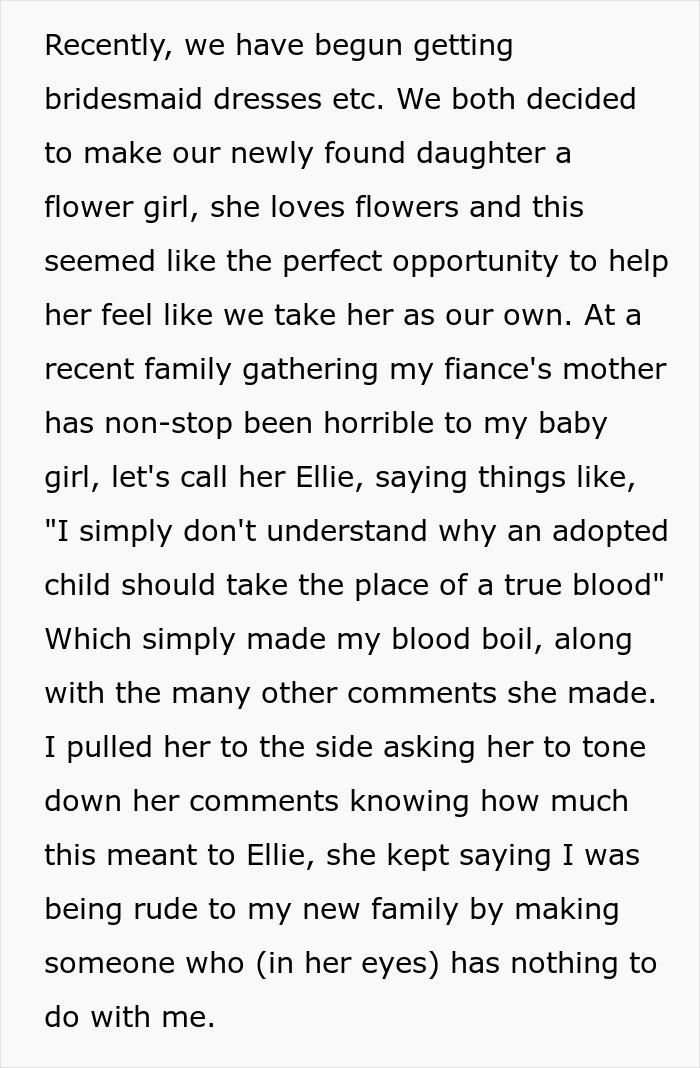

Image credits: Delany Dean (not the actual photo)
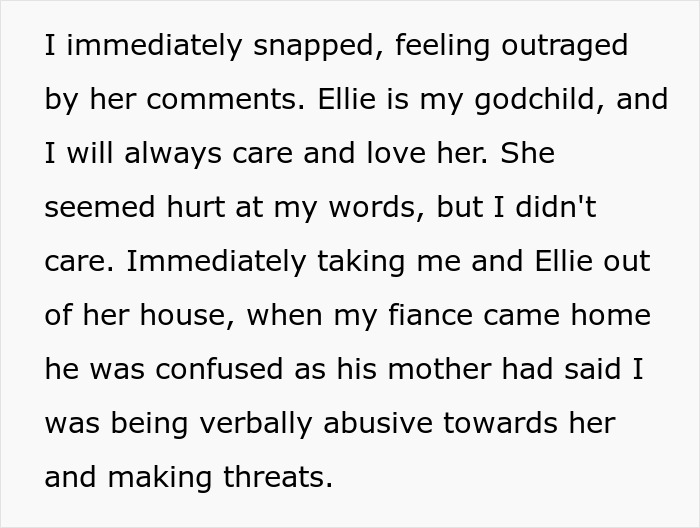

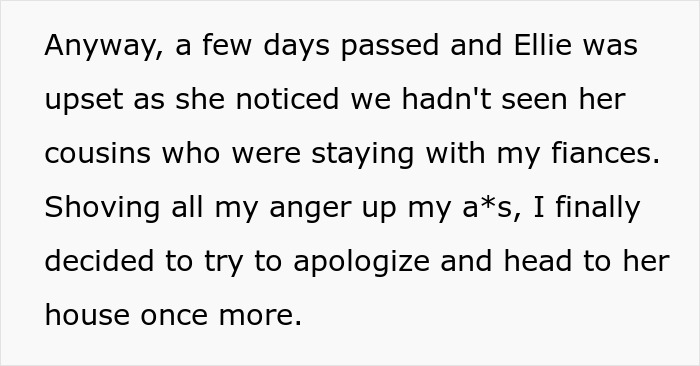

Image credits: Pavel Danilyuk (not the actual photo)
This statement did not sit well with the author as she snapped at the woman and told her off
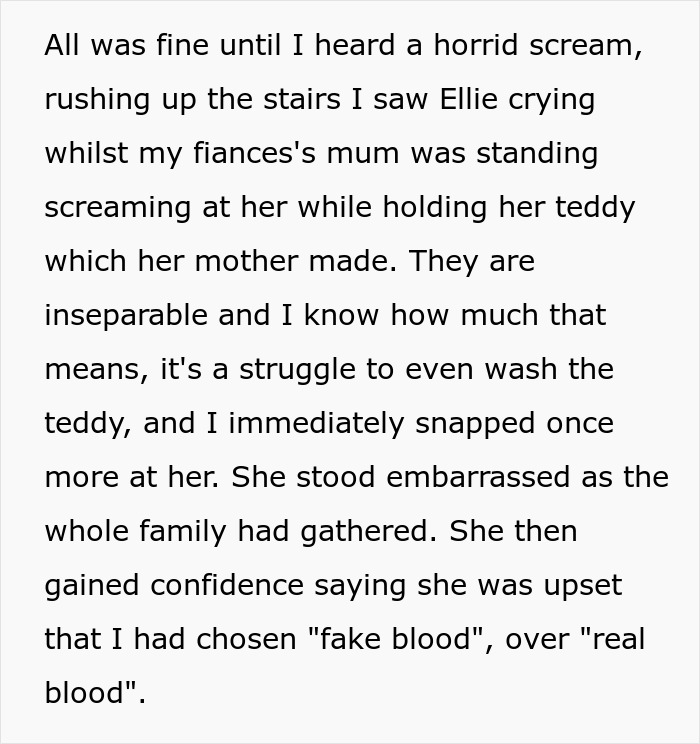
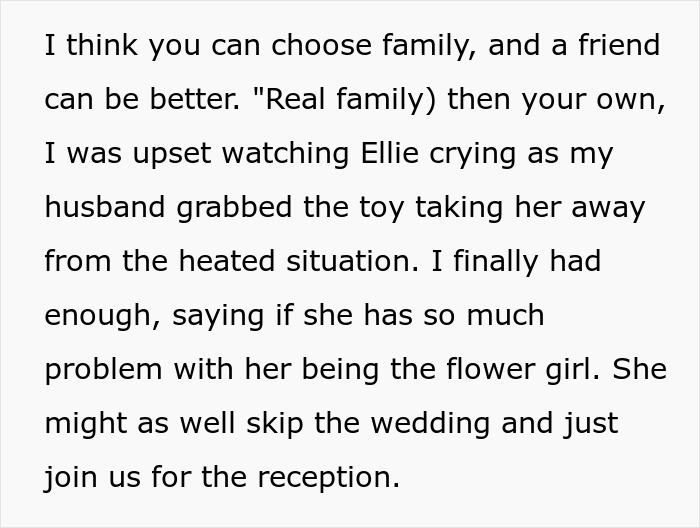

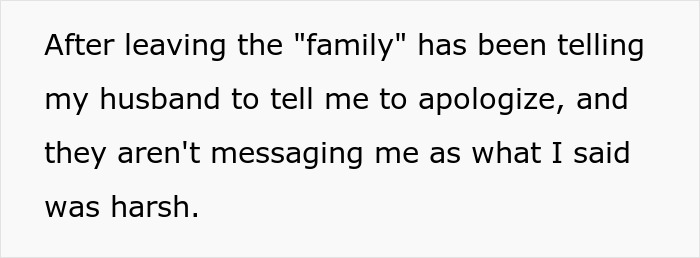

Image credit: u/kdea05
The Original Poster (OP) explained that she and her high school sweetheart were finally tying the knot after seven years of dating. She got along with most of his family members except his mother, who continuously nagged her for not giving her a grandson. However, she already had a grandchild – her late best friend’s five-year-old daughter.
This type of adoption is called an identified adoption, also known as a private adoption or known placement adoption. This means that you already know the birth parents, in this case, your friend, and choose them to adopt your child.
The main issue started at a family gathering where the OP’s fiancé’s mother was constantly horrible to the little girl, stating that she didn’t understand why an adopted child would take the place of a “true blood” grandchild. This did not go down well with the OP, and she asked her to tone it down. However, the fiancé’s mother stuck to her guns, claiming that the OP was being rude to her new family by introducing someone “who has nothing to do with” her.
Hearing this, she snapped and walked out of the house with her daughter. Her fiancé, upon confrontation, mentioned that his mother claimed the she had made threats, which she denied. She eventually came around and decided to apologize to his mother. Long story short, it did not end well, as the fiancé’s mother ended up getting into a tiff with the adopted daughter, Ellie, after she snatched a teddy bear her bio mother had made for her.
This led the OP to snap again. What upset her even more was the fiancé’s mother’s sly comment about the OP choosing “fake blood” over “real blood.” This led the OP to tell the mother she could skip the wedding if she had a problem with Ellie being the flower girl. This did not sit well with the family, who insisted the OP apologize for her words, but she disagreed.
The mother-in-law wanted to tamper with the girl’s teddy bear, a gift from her biological mother

Image credits: RAFAEL RUSSANO SILVA (not the actual photo)
With the rise of diverse family structures, it’s increasingly important to respect individual choices and navigate potential challenges. Setting boundaries can be key to navigating differences and fostering supportive relationships. According to Adoption.org, opting out of harmful situations can be the simplest and most effective way to protect your children’s well-being. Remember, “no” is a complete sentence, especially when it comes to safeguarding your loved ones. While ingrained people-pleasing tendencies might push us to explain ourselves, prioritizing your family’s needs takes precedence.
Recognizing and respecting your limits is crucial. This includes understanding both your own limitations and those of your children. Setting firm boundaries and consistently enforcing them, as recommended by experts, builds trust and respect. If these boundaries are repeatedly disregarded, consider distancing yourself from potentially harmful situations. Remember, you don’t owe explanations to those who fail to prioritize your family’s safety.
It’s important to note that setting boundaries doesn’t preclude open communication. In fact, fostering healthy dialogue can often accompany and strengthen the effectiveness of boundaries.
Community members rallied behind the OP, as there was no debate about whether Ellie was her daughter. Also, according to many commenters, if the family can’t accept this fact and choose to behave otherwise, they should leave the couple alone. In addition, commenters mentioned that if the OP’s fiancé wants to be in her life, he needs to step up and deal with his mother.
What do you think of this issue? Would you have acted the same way as OP did? Share your thoughts in the comments below.
People in the comment section agreed with her, and some suggested her fiancé should be more assertive in addressing his mother’s behavior
